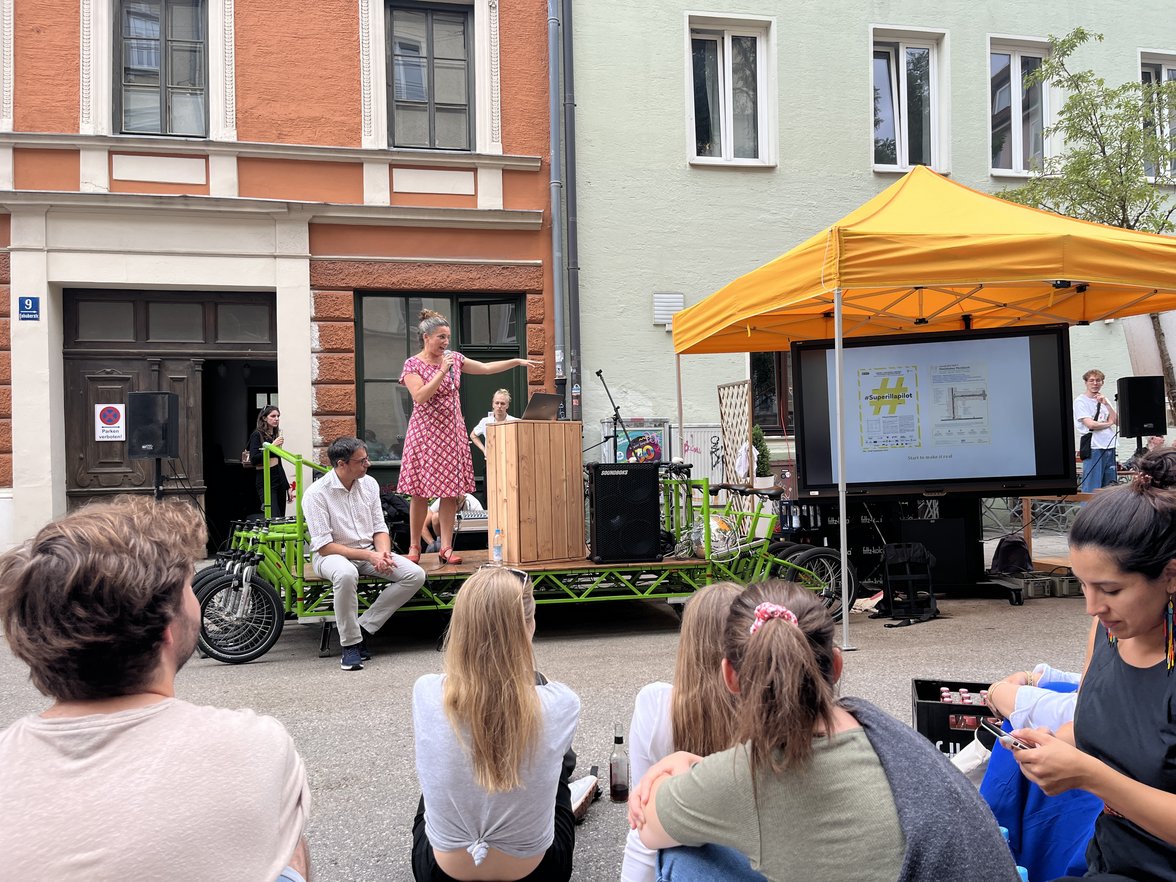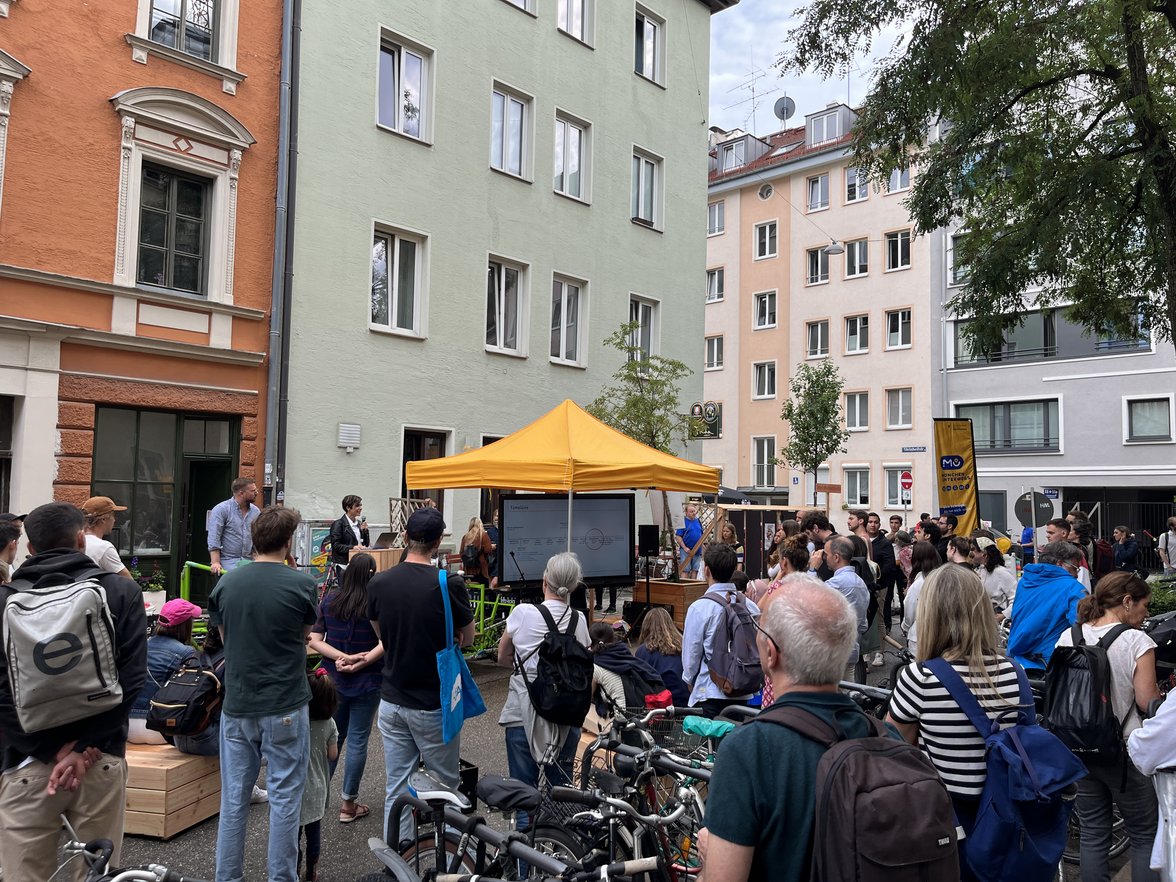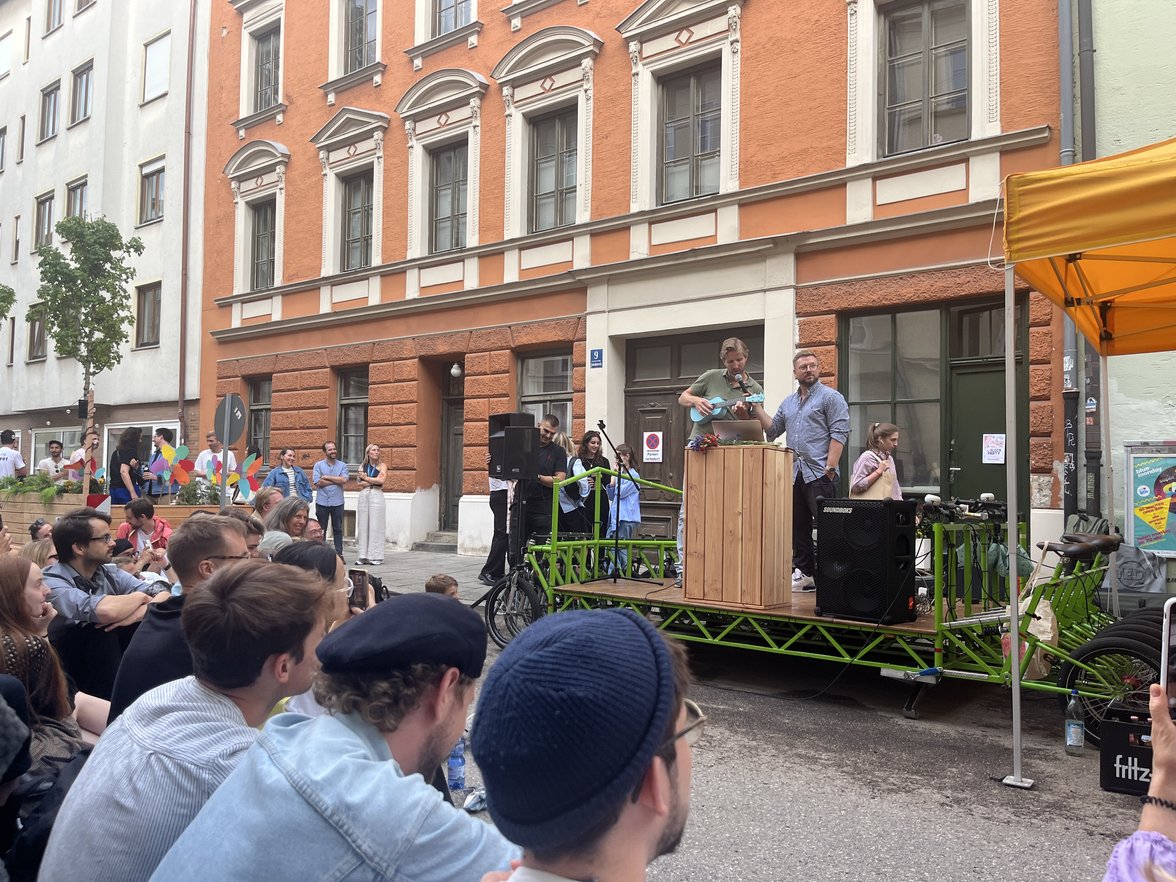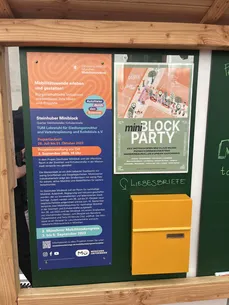Latest
Recap: miniBLOCK PARTY on 28.07.2023
Recap
The first miniBLOCK PARTY in Munich brought together urban enthusiasts and members of the neighborhood to the (new) Steinhuberplatz. The event, organized by TUM Accessibility Planning, SET (Street Experiments Tool), and WOW! Urbane Utopien, offered a diverse program that delved deep into the future of urban spaces and highlighted the role of society.
The event began with introductory words from Benjamin Büttner and Ana Rivas. Next, Dr. Svenja Jarchow and Sigrid Eck (both from the city of Munich) discussed "Munich: What's happening?" focusing on the significance of local politics and administration for urban development.
The next speaker was Catherine Arod-Gall from Paris, who introduced the concept of the "15-minute city" and emphasized the importance of proximity for creating sustainable and livable urban environments.
Global perspectives came into focus as Xavier Matilla and Silvia Casorran Martos shared insights into "Barcelona Superblocks," inspiring participants with success stories from cities around the world.
Ana Rivas and Benjamin Büttner provided specific details on the planning of the "Miniblock Steinhuber" project, showcasing how small changes, such as transforming parking spaces into parklets and miniblocks, can significantly impact urban life. To offer attendees deeper insights, Simone Aumann led a tour of the Steinhuber Miniblock, explaining the underlying ideas behind the planning and answering questions.
After a brief musical interlude, Marco Te Brömmelstroet presented the talk "How to communicate transitions," drawing fascinating parallels between urban mobility and why John Lennon was in bed with a bicycle, emphasizing the power of effective communication for change.
Additionally, attendees were taken on a journey "Around the World in 30 Minutes" by Lior Steinberg and George Liu, providing insights into street experiments worldwide and sharing their diverse experiences.
Katherine VanHoose gave the final presentation on "Can street experiments really transform urban mobility?" encouraging participants to reconsider the possibilities of streets as vibrant community spaces.
An essential aspect of the miniBLOCK PARTY was the "Open Mic" segment, where voices from the neighborhood shared their thoughts on the "Miniblock Steinhub" project, fostering dialogue in the community and enabling open discussions about urban development and its impact on local communities.
The festivities continued with a delightful picnic in the Miniblock, where Bavarian delicacies were served, and an insightful discussion on "Linear Green Places" by Patxi J. Lamíquiz Daudén and Beatriz Martinez Rico accompanied by live music took place.
Hopefully, the success of the event left participants inspired and motivated to actively contribute to positive changes in their neighborhoods and cities. Plans for the next Party are already in full swing, promising an even grander celebration. The date will be announced soon!
You can find a TV spot about the project and the party here: https://www.muenchen.tv/mediathek/video/muenchen-heute-vom-28-07-2023/ (only in German)
The project "Miniblock Steinhuber"
The transportation concept for the Miniblock "Steinhuber" in Munich aims to redesign the public space in the Steinheil and Enhuber streets neighborhood in Maxvorstadt. Maxvorstadt is a densely built urban district with limited green spaces and seating areas. The concept intends to create temporary seating areas and green spaces to establish a place for relaxation that contributes to a climate-resilient and livable city. The Miniblock is also meant to serve as a model for future-oriented and car-reduced residential areas, providing a consumption-free zone for social interaction and inclusion.
The main goal of the project is to enhance the quality of stay by creating traffic-calmed areas and promoting climate- and socially-just mobility. The redesign of the public space in the entire Steinheil and Enhuber streets is planned for the summer of 2023. In the long term, the project aims to drive a systemic shift towards sustainable mobility.
All information can be found here.








